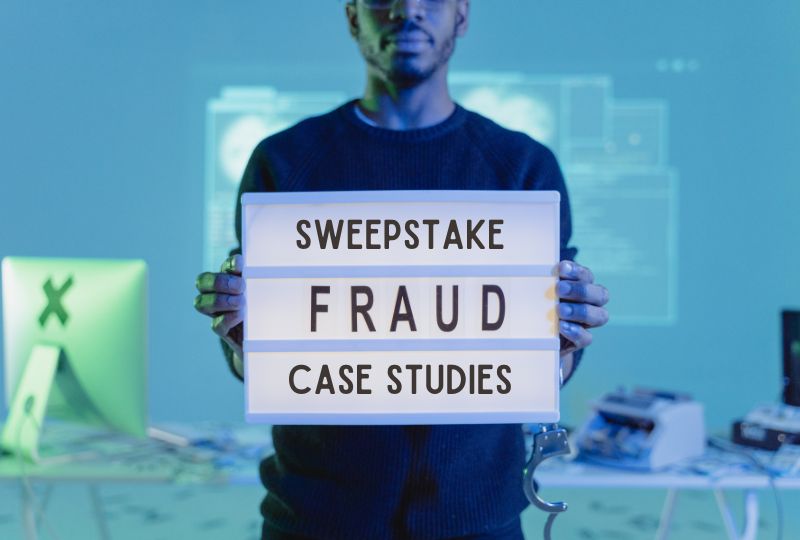To understand the complexities and impact of sweepstakes fraud, examining real-life case studies is invaluable. These examples shed light on the tactics employed by scammers, the vulnerabilities exploited, and the repercussions faced by victims. Let's delve into some illuminating case studies:
The Jamaican Lottery Scam:This notorious scam targeted elderly individuals in the United States, convincing them that they had won a lottery or sweepstakes in Jamaica. Victims were told they needed to pay taxes or fees upfront to claim their supposed winnings. In reality, there was no prize, and once victims sent money, they were often relentlessly hounded for more. This scam resulted in significant financial losses and emotional distress for many vulnerable individuals.
Fake Social Media Giveaways:Scammers frequently exploit the popularity of social media platforms to perpetrate sweepstakes fraud. In one case, a fake Instagram account posing as a well-known fashion brand announced a giveaway of high-end merchandise. Participants were required to follow the account, like the post, and tag friends to enter. The scammer collected a substantial number of followers and engagement before disappearing without awarding any prizes, leaving participants feeling duped and disappointed.
The Publisher's Clearing House Impersonation Scam:The Publisher's Clearing House sweepstakes is a legitimate promotion known for awarding substantial prizes to winners. However, scammers often impersonate this reputable company to deceive victims. In one instance, a scammer contacted an elderly individual claiming to represent Publisher's Clearing House and informed them that they had won a large sum of money. The victim was instructed to pay taxes and processing fees upfront to claim the prize, but no prize ever materialized.
Malware Distribution via Fake Sweepstakes:Scammers may distribute malware disguised as sweepstakes entry forms or prize claim procedures. In a case study, unsuspecting individuals received emails purportedly from a well-known retailer, informing them that they had won a gift card in a sweepstakes. To claim the prize, recipients were instructed to download an attached file containing the prize claim form. However, the file actually contained malware designed to steal personal information from the victim's device, compromising their security and privacy.
Identity Theft through Fake Prize Notifications:Scammers often use fake prize notifications to trick individuals into divulging sensitive personal information. In one case, a victim received an email claiming that they had won a cash prize in a sweepstakes they never entered. Excited by the prospect of winning, the victim provided their bank account details and other personal information as instructed. This information was then used by the scammer for identity theft, resulting in financial losses and extensive damage to the victim's credit.
Conclusion:Sweepstakes fraud is a pervasive problem that can have devastating consequences for victims. By learning from these real-life examples and case studies, individuals can become more aware of the tactics used by fraudsters and take steps to protect themselves. It's important to remember that legitimate sweepstakes and lotteries do not require payment or personal information to claim a prize. If you suspect you have been targeted by sweepstakes fraud, report it to the relevant authorities immediately.
